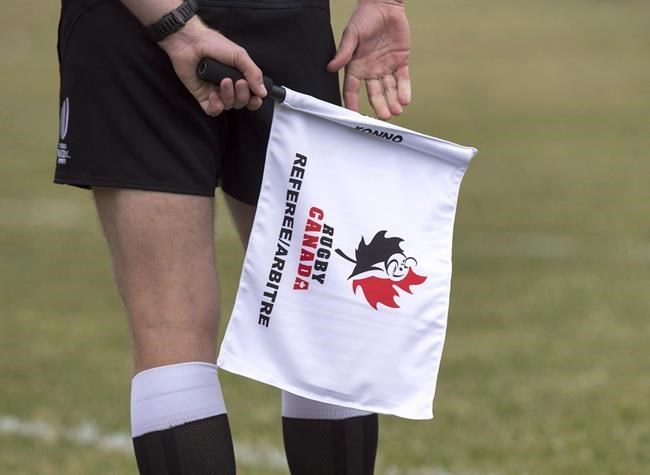TORONTO — World rugby is taking a financial beating because of the COVID-19 shutdown. USA Rugby, its bottom line battered, has already filed for bankruptcy.
Rugby Canada is expecting a sizable hit. How big depends on how long the lockdown continues. CEO Allen Vansen, following the view of public health authorities, says the Canadian governing body is planning for later rather than sooner.
"We've taken that advice to heart in terms of the impacts to our business — (it) is not going to be a matter of weeks, it's going to be a matter of months," he said Friday.
He anticipates a decline of $4 million to $6 million this year in gross revenue, although that will be accompanied by a reduction in expenses given the pandemic has forced events to be called off.
In 2017, the most recent figures available, Rugby Canada had $16.2 million in revenue.
Vansen does not see Canada having to follow USA Rugby's drastic route. But he says tough decisions remain.
The suspension of play means Rugby Canada is not taking in its portion of registration dues from about 80 per cent of its some 30,000 participants in the country. The other 20 per cent comes from B.C. which operates on a different season schedule.
Provincial bodies and some 260-plus clubs across the country will also feel that registration revenue pinch, said Vansen.
"That element alone will be a significant change for Canadian rugby not just Rugby Canada in 2020."
Rugby Canada has done a number of models on possible scenarios when the sport might resume.
"I think the reasonable approach that we've taken is the earliest that we might see something would be that August-September window. But nobody has a crystal ball in this," said Vansen.
Missing out on the women's Langford Sevens in May and possibly a pair of men's July internationals reduces revenue. The Canadian men also have Americas Rugby Championship matches slated for August and September.
Vansen is anticipating those events will likely be postponed or cancelled.
The situation could have been a lot worse had Canada not qualified for last year's World Cup, which would have reduced the financial support from the sport's world governing body (World Rugby). And the pandemic did not impact the March 7-8 Canada Sevens in Vancouver, an important revenue-raiser with 77,096 attending the two-day event at B.C. Place Stadium.
"We'd be certainly looking at different scenarios now if that event hadn't been held," said Vansen.
The first day of competition drew 39,533 fans, a rugby record in Canada.
The revenue side of the 2017 bottom line saw Sport Canada provide $2.3 million and World Rugby $2.2 million. The Canada Sevens contributed $1.2 million.
According to the financial report, international events (test and other international matches) provided another $2.1 million and national teams (a variety of revenue streams linked to the national teams including some donations and some of the dues collected from national registration) another $2.5 million.
The shutdown of the game means donations and merchandise sales — which totalled more than $2 million in 2017 — could be affected.
Rugby Canada is looking to cut costs, which ironically will be helped by not having its teams travel.
It has not had to lay off any of its 40-odd full-time employees with Vansen calling the federal government's emergency wage subsidy program "a life-saver." It provide a 75-per cent wage subsidy to eligible employers for up to 12 weeks, retroactive to March 15.
Most Rugby Canada staffers are connected to its national teams, according to Vansen. The organization has some 80 to 90 athletes centralized at its training centre in Langford, B.C.
There could be some additional support from World Rugby, although many other countries are also in need.
"If it does come, it will enable us to certainly allow our programs to go forward and not have to make some more difficult decisions in future days," said Vansen.
Like other national sports operations in Canada, there is little room for error in Rugby Canada's bottom line.
"We're often operating right at the line in a deficit position one year, a little bit to the positive the next year. We're living that true not-for-profit status year-to-year and month-to-month, quite frankly," Vansen said.
Like other sports organizations, it is also using the time away from competition to plan for the future and undertake administrative projects that have been previously pushed aside due to lack of time.
This report by The Canadian Press was first published April 3, 2020.
---
Follow @NeilMDavidson on Twitter
Neil Davidson, The Canadian Press


